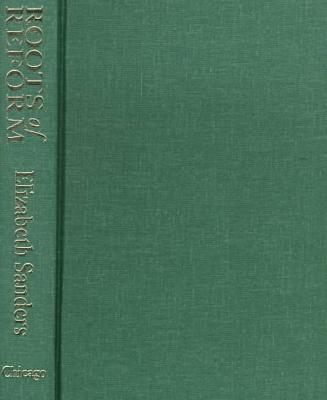

 |

|

The average rating for Roots of reform based on 2 reviews is 3.5 stars.
Review # 1 was written on 2012-03-13 00:00:00 Joe Garcia Joe GarciaOften frustrating and often illuminating, the best part of this book is that contains within it a nonpareil history of a contentious though specialized field, Progressive federal legislation. The book chronicles, in elaborate detail, the legislative histories behind everything from the Interstate Commerce Act of 1887 to the Grain Standards Act of 1916. This is its singular focus, and a worthwhile one it is. Reading the minute debates about, for instance, whether to exclude labor organizations from prosecution in the 1914 Clayton Antitrust Act, and what language to use in doing so, gives one a real sense of the political battles of the era and what they meant for the country. On the other hand, the grand thesis of the book, that Midwestern and Southern farmers were the progenitors of most of the Progressive reforms of the era, is often harder to square with those detailed facts. Most major votes on the acts described are accompanied by a three-row chart, showing votes among the "core" representatives (those in industrial districts), "periphery" representatives (those in agriculture districts), and "diverse" representatives (those with mixed constituencies, typically in the Upper Midwest). Unfortunately most of the tallies show that party was much more important in determining votes than location, but sometimes the author's contention bears out. In the early years of the Wilson administration, which consumes close to a majority of the book, the periphery was behind much of the reform, even supposedly commercial-type reforms like the Federal Reserve Act. The author also makes a case that periphery reforms typically involved strict legislative language and eschewed expert commissions, like the ICC or the FTC. Her numbers bear out that these agencies were surprisingly the focus of the "diverse" representatives, more than both core and periphery, and that alliance with these forces caused the periphery to consent to experts they never appreciated. The author does make a forceful argument that, since the U.S. congressional system is organized around discrete geographic areas, geography, more even than interest groups or national constituencies, must always be central in understanding how American laws get passed. Her final call to revive the clear legislative reforms of the periphery against the ever-encroaching commissions of elite reformers also brings an interesting modern touch to this fascinating tale. |
Review # 2 was written on 2016-01-02 00:00:00 David Balog David BalogPretty dry, as nonfiction history books go, but it has a fascinating argument about the ancestors of the Democratic party, particularly in the Progressive Era. |
CAN'T FIND WHAT YOU'RE LOOKING FOR? CLICK HERE!!!